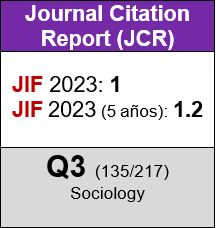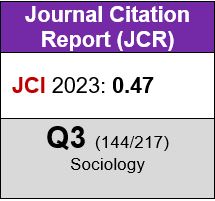Desigualdad, acción colectiva y redistribución: un nuevo indicador para una relación compleja
DOI:
https://doi.org/10.5477/cis/reis.151.167Palabras clave:
Acción colectiva, Distribución de la renta, Desigualdad económica, Indicadores económicos, Indicadores socialesResumen
La literatura más influyente en economía política supone que un aumento de la desigualdad incrementa las presiones por la redistribución del ingreso, pero esta presunción no parece corroborarse empíricamente. Quizás esto se deba a que en ocasiones la desigualdad aumenta únicamente entre los tramos inferiores de la distribución total de ingresos. En estos casos, la desigualdad aumenta la dispersión de los ingresos entre los sectores más interesados en redistribuir y esto incrementa sus problemas de acción colectiva. Este artículo propone un nuevo principio teórico para el análisis de la relación entre la desigualdad y la redistribución, y desarrolla un indicador consistente con este principio. Finalmente se efectúa una primera exploración empírica para ilustrar como el indicador propuesto se encuentra significativamente asociado con los niveles de redistribución del ingreso en 19 países de la OCDE entre 1974 y 2005
Descargas
Descargas
Publicado
Cómo citar
Número
Sección
Licencia
Derechos de autor 2024 Revista Española de Investigaciones Sociológicas

Esta obra está bajo una licencia internacional Creative Commons Atribución-CompartirIgual 4.0.
Permite Compartir — copiar y redistribuir el material en cualquier medio o formato, Adaptar — remezclar, transformar y construir a partir del material para cualquier propósito, incluso comercialmente.








